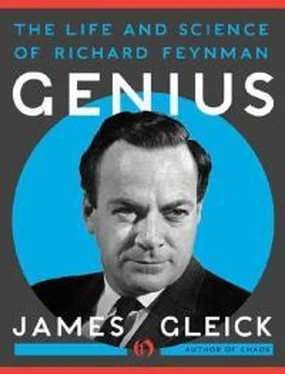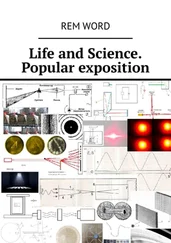There are lots of people who are too original for their own good, and had Feynman not been as smart as he was, I think he would have been too original for his own good.
There was always an element of showboating in his character. He was like the guy that climbs Mont Blanc barefoot just to show that it can be done. A lot of things he did were to show, you didn’t have to do it that way, you can do it this other way. And this other way, in fact, was not as good as the first way, but it showed he was different.
Feynman continued to refuse to read the current literature, and he chided graduate students who would begin their work on a problem in the normal way, by checking what had already been done. That way, he told them, they would give up chances to find something original. Coleman said: I suspect that Einstein had some of the same character. I’m sure Dick thought of that as a virtue, as noble. I don’t think it’s so. I think it’s kidding yourself.
Those other guys are not al a col ection of yo-yos.
Sometimes it would be better to take the recent machinery they have built and not try to rebuild it, like
reinventing the wheel.
I know people who are in fact very original and not cranky but have not done as good physics as they could have done because they were more concerned at a certain juncture with being original than with being right. Dick could get away with a lot because he was so goddamn smart. He real y could climb Mont Blanc barefoot.
Coleman chose not to study with Feynman directly.
Watching Feynman work, he said, was like going to the Chinese opera.
When he was doing work he was doing it in a way that was just—absolutely out of the grasp of understanding. You didn’t know where it was going, where it had gone so far, where to push it, what was the next step. With Dick the next step would somehow come out of—divine revelation.
So many of his witnesses observed the utter freedom of his flights of thought, yet when Feynman talked about his own methods he emphasized not freedom but constraints.
The kind of imagination that takes blank paper, blank staves, or a blank canvas and fil s it with something whol y new, whol y free—that, Feynman contended, was not the scientist’s imagination. Nor could one measure imagination as certain psychologists try to do, by displaying a picture and asking what wil happen next. For Feynman the essence of the scientific imagination was a powerful and almost painful rule. What scientists create must match reality. It must match what is already known. Scientific creativity, he said, is imagination in a straitjacket. “The whole question of imagination in science is often misunderstood by people in other disciplines,” he said.
“They overlook the fact that whatever we are allowed to
imagine in science must be consistent with everything else we know … .” This is a conservative principle, implying that the existing framework of science is fundamental y sound, already a fair mirror of reality. Scientists, like the freer-seeming arts, feel the pressure to innovate, but in science the act of making something new contains the seeds of paradox. Innovation comes not through daring steps into unknown space,
not just some happy thoughts which we are free to make as we wish, but ideas which must be consistent with al the laws of physics we know. We can’t al ow ourselves to seriously imagine things which are obviously in contradiction to the known laws of nature.
And so our kind of imagination is quite a difficult game.
Creative artists in modern times have labored under the terrible weight of the demand for novelty. Mozart’s contemporaries expected him to work within a fixed, shared framework, not to break the bonds of convention.
The standard forms of the sonata, symphony, and opera were established before his birth and hardly changed in his lifetime; the rules of harmonic progression made a cage as unyielding as the sonnet did for Shakespeare. As unyielding and as liberating—for later critics found the creators’ genius in the counterpoint of structure and freedom, rigor and inventiveness.
For the creative mind of the old school, inventing by pressing against constraints that seem ironclad, subtly bending a rod here or slipping a lock there, science has become the last refuge. The forms and constraints of scientific practice are held in place not just by the grounding in experiment but by the customs of a community more homogeneous and rule-bound than any community of artists. Scientists stil speak unashamedly of reality , even in
the quantum era, of objective truth, of a world independent of human construction, and they sometimes seem the last members of the intel ectual universe to do so. Reality hobbles their imaginations. So does the ever more intricate assemblage of theorems, technologies, laboratory results, and mathematical formalisms that make up the body of known science. How, then, can the genius make a revolution? Feynman said, “Our imagination is stretched to the utmost, not, as in fiction, to imagine things which are not real y there, but just to comprehend those things which are there.”
It was the problem he faced in the gloomiest days of 1946, when he was trying to find his way out of the mire that quantum mechanics had become. “We know so very much,” he wrote to his friend Welton, “and then subsume it into so very few equations that we can say we know very little (except these equations) … Then we think we have the physical picture with which to interpret the equations.” The freedom he found then was a freedom not from the equations but from the physical picture. He refused to let the form of the mathematics lock him into any one route to visualization: “There are so very few equations that I have found that many physical pictures can give the same equations. So I am spending my time in study—in seeing how many new viewpoints I can take of what is known.” By then Welton had mastered the field theory that was becoming standard, and he was surprised to discover that his old friend had not. Feynman seemed to hoard shadow pools of ignorance, seemed to protect himself from the light like a waking man who closes his eyes to preserve a fleeting image left over from a dream. He said later,
“Maybe that’s why young people make success. They don’t know enough. Because when you know enough it’s obvious that every idea that you have is no good.” Welton, too, was persuaded that if Feynman had known more, he could not have innovated so wel .
“Would I had phrases that are not known, utterances that are strange, in new language that has not been used, free from repetition, not an utterance which has grown stale, which men of old have spoken.” An Egyptian scribe fixed those words in stone at the very dawn of recorded utterance—already jaded, a mil ennium before Homer.
Modern critics speak of the burden of the past and the anxiety of influence, and surely the need to innovate is an ancient part of the artist’s psyche, but novelty was never as crucial to the artist as it became in the twentieth century.
The useful lifetime of a new form or genre was never so short. Artists never before felt so much pressure to violate such young traditions.
Meanwhile, before their eyes, the world has grown too vast and multifarious for the towering genius of the old kind.
Artists struggle to keep their heads above the tide. Norman Mailer, publishing yet another novel doomed to fal short of ambitions formed in an earlier time, notices: “There are no large people any more. I’ve been studying Picasso lately and look at who his contemporaries were: Freud, Einstein.”
He saw the change in his own lifetime without understanding it. (Few of those looking for genius understood where it had gone.) He appeared on a literary scene so narrow that conventional first novels by writers like James Jones made them appear plausible successors to Faulkner and Hemingway. He slowly sank into a thicket of hundreds of equal y talented, original, and hard-driving novelists, each just as likely to be tagged as a budding genius. In a world into which Amis, Beckett, Cheever, Drabble, El ison, Fuentes, Grass, Hel er, Ishiguro, Jones, Kazantzakis, Lessing, Nabokov, Oates, Pym, Queneau, Roth, Solzhenitsyn, Theroux, Updike, Vargas Llosa, Waugh, Xue, Yates, and Zoshchenko—or any other two dozen fiction writers—had never been born, Mailer and any other potential genius would have had a better chance of towering. In a less crowded field, among shorter yardsticks,
Читать дальше












